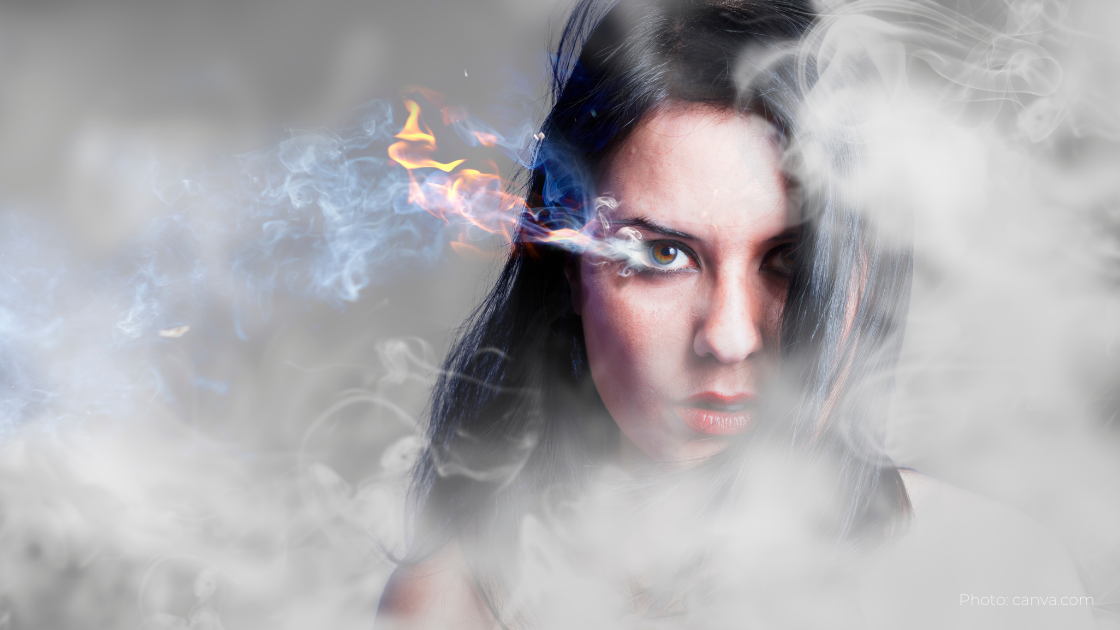The only problem with our emotions is how we view them. Emotions are beautiful teachers; they inform us and try to wake us up. Our emotions are not fluid and can’t be controlled, as much as we might try. We can however learn to regulate and settle some of our emotions so that we feel more consistent and less erratic. If an emotion takes over our experience and makes it hard to function, this can destabilize us and leave us feeling out of control. We could try to control the emotion or, alternately, choose to explore its meaning. The latter might help settle us.
For example, if anger feels forbidden, perhaps that’s because it feels foreign or it comes with a heavy dose of shame. I’ve worried about my anger, worried about what others would think of it or why it can feel so intense at times. Generally, when I feel angry I avoid others so that I can check in with myself and allow the emotion to have space. I’ve learned that if I try to stuff my anger down it becomes worse, and I have physical side effects such as headaches, eye twitching, bloating, sore joints, etc.
The truth is, my anger has become immensely important in my life.
I’ve recognized how it’s here to help me, not sabotage me. When I’m angry it’s a signal that someone has pushed past a clear (or unclear) boundary. I may feel taken advantage of, disrespected, insulted or not even considered. I feel angry when someone isn’t listening to my words or when someone wants me to be something other than what I am.
For years I kept pushing the feeling down. My anger eventually got to a point where I could no longer pretend it wasn’t there; I had to stop shaming myself for experiencing it. My anger is a teacher. I’ve learned to stand at attention the moment I hear it percolating. It’s a red flag indicator, it arises to wake me up and impress the importance of what’s happening. When I feel angry I stop and listen and figure out why it’s coming up. It reminds me that I’m not listening to my intuition, and that if I listen to my inner self knowing there’s a mountain of wisdom in it.
Your emotions will teach you different things than mine do. Whether anger, frustration, indifference, defiance, obedience, indignation, agitation, worry, scarcity, or fear, they are all meant to teach and awaken us to what’s happening in our bodies and our world. They are a compass, a reminder of something we need to step away from or a gentle push where we need to speak the truth. They are a place to do our inner work and understand ourselves better. What is the emotion’s purpose, and what is it here to show you?
We often don’t question happiness, joy, pleasure, freedom or any of the things that elevate feeling good. Yet these emotions are also prolific teachers. They can help us understand when we’re moving with flow-state in our lives. When things feel good, they help us with developing a healthy relationship with ourselves. They become a barometer and help us settle into our parasympathetic nervous system, which allows us to think clearly, reduces stress, and we’re less reactive. If feeling good brings up feelings of scarcity (aka the good feeling is not going to last) or emotions that pull you out of feeling good, it’s absolutely worth examining why. Without feeling good, we can’t recognise feeling bad until it’s pulled us far from our center. Both experiences are radically different and both help us find the middle path.
When an emotion comes up that feels intense, acknowledge the emotion and welcome it. Instead of ignoring it or stuffing it down, speak to it and don’t be fearful of it. It’s a guide that’s been sent from within to help you.
Since I’ve started tending to my anger, I make clear choices that support me quicker and without drama. I don’t take offense to others with such intensity, and I no longer react by gossiping and pulling them apart. I can regulate myself and settle the intensity fairly quickly by looking at why its here and what it’s asking me to notice.
Ponder this, what happens with unexpressed anger? What ailments develop in our bodies? Does it contribute to depression, anxiety or feeling ambivalent?
Do you have a dominant emotion? Are there a couple of emotions that trickle in and remind you that something is off key in your life? Have you pondered the wisdom in those emotions?
xo, Noelle

